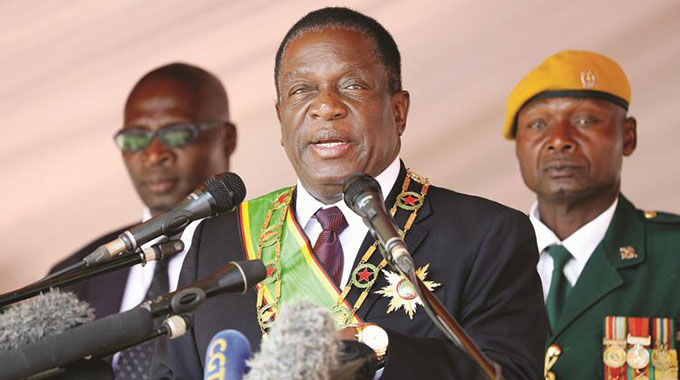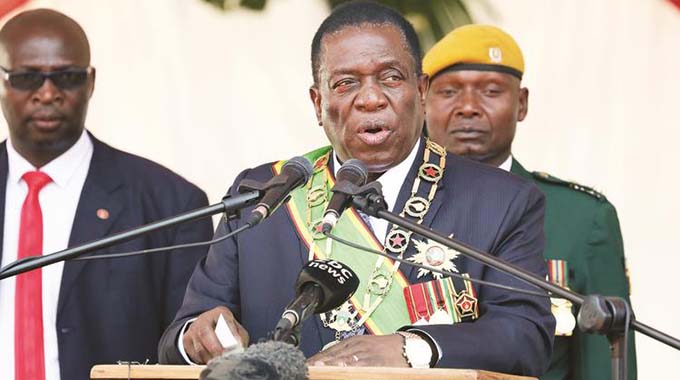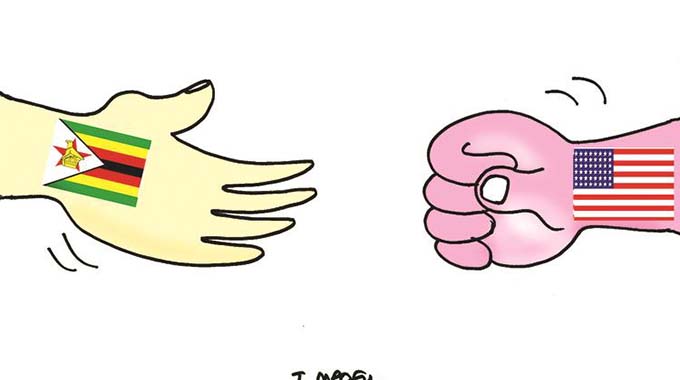EDITORIAL COMMENT: Development bids us to put politics behind us

President Mnangagwa has appealed to Zimbabweans to put election politics behind them and start working together to accelerate economic growth and development.
This should not be impossible. There is a great deal of consensus right across the political spectrum over the main outline of what needs to be done and while there will be differences and sometimes sharp differences, in the detailed policies and in the order of priorities, discussion and debate on these details can be both rapid, open and can tend towards consensus if a listening Government is prepared to grab the best ideas, regardless of source, and ensure they are properly implemented and monitored, so things that work can be reinforced and stuff that looked good in a plan, but does not work can be changed, rethought or simply replaced by something better.
What is most important in a country pushing for economic growth is that no one can be left behind. In other words, we are not looking at choosing between pushing forward with agriculture, mining, tourism, industry or services.
We need to be pushing forward simultaneously in all sectors of the economy. We need to grow more, mine more, make more, attract more tourists and make it easy and viable to set up service businesses for all sectors. And with growth everyone is a winner.
This means that the stark division in Parliament between those who represent rural constituencies, almost all from Zanu-PF and those who represent urban constituencies, almost all MDC-Alliance, does not matter. They do not have to compete.
They can all virtuously press for what their own constituents need and explain this in debate, knowing that helping the people back home is also helping Zimbabwe. What is not needed is trying to block other Parliamentarians who have good ideas and the interests of their constituents at heart. Zimbabwe needs all to move forward and move forward fast.
Co-operation will be the watchword. Yes, if you are a farmer then you want improvements to the input-credit schemes already in place and guaranteed markets for the output. This is critical in a country like Zimbabwe where farming absorbs the largest slice of the population, but having high levels of production benefits everyone and having that same largest slice of the active population earning more money means that those who make things for farmers, or sell things to their families, also win.
If you are a finance services type you will want those credit schemes easy to administer and monitor, so you can participate and will possibly want to see them become more businesslike, as we have seen with tobacco where the growth in solid contracts between trustworthy tobacco companies and trustworthy farmers has set a new record in tobacco production this year.
If you are an industrialist or represent those with factory jobs, you will be interested in ensuring that policies are in place that encourage the right sort of crops to be grown to provide raw materials for factories and that there are incentives to ensure that as much processing as possible is done within Zimbabwe, even for export crops.
Tobacco is again a leader here. Added to the hundreds of millions of dollars earned collectively by the farmers, are hundreds of millions more earned by the tobacco companies who contract for the right types, process the leaf, treat the leaf, pack the leaf and fill detailed and explicit foreign orders.
And all that extra work provides a lot of industrial salaries. The combined effort of farmer and industrialist means far more than farmers and industrial workers with money in their pockets. It also means that Zimbabwe can afford to buy goods it cannot produce or make itself. It has been said that the tobacco export earnings and the fuel import bill roughly balance.
If you are in mining you will want investor-friendly laws in place, with the politics largely limited to ensuring that almost all new mining jobs go to Zimbabweans and that fair taxes are paid. And others will probably want to see as much local content going into that investment as possible so those they represent will also benefit directly.
None of this is difficult or causes any need for political divisions.
Disagreement is unlikely.
All this does not mean that politicians and Parliamentarians do nothing, but cheer each other on. It does mean that they ensure that no one is left behind, that policies generated in debate and discussion make sense and are corruption-proof, that in general best practices are followed and that everyone is doing their job properly.
It involves trying to make sure that every step forward is a real advance. It is hard word. But it is a different sort of politics to shouting across the aisle or trying to score points off each other. And one that makes everyone a winner.







Comments